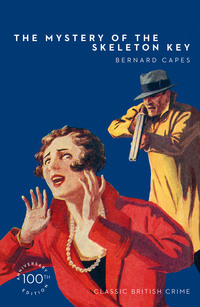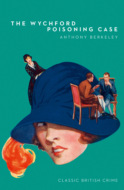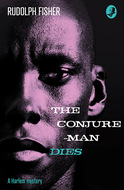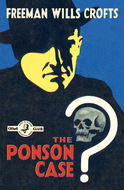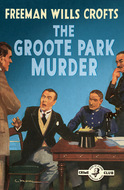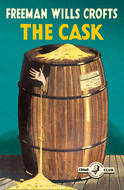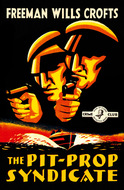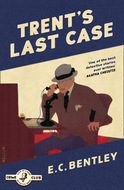Buch lesen: "The Mystery of the Skeleton Key"

Published by COLLINS CRIME CLUB
An imprint of HarperCollinsPublishers Ltd
1 London Bridge Street
London SE1 9GF
First published in Great Britain as The Skeleton Key
by Wm Collins Sons & Co. Ltd 1919
Published by The Detective Story Club Ltd 1929
Introduction © Hugh Lamb 2015
Cover design © HarperCollinsPublishers Ltd 1929, 2015
A catalogue copy of this book is available from the British Library.
This novel is entirely a work of fiction. The names, characters and incidents portrayed in it are the work of the author’s imagination. Any resemblance to actual persons, living or dead, events or localities is entirely coincidental.
All rights reserved under International and Pan-American Copyright Conventions. By payment of the required fees, you have been granted the non-exclusive, non-transferable right to access and read the text of this e-book on screen. No part of this text may be reproduced, transmitted, down-loaded, decompiled, reverse engineered, or stored in or introduced into any information storage and retrieval system, in any form or by any means, whether electronic or mechanical, now known or hereinafter invented, without the express written permission of HarperCollins.
Source ISBN: 9780008137144
Ebook Edition © August 2015 ISBN: 9780008137151
Version: 2019-05-30
Contents
Cover
Title Page
Copyright
Introduction
Epigraph
Introduction
Chapter I: MY FIRST MEETING WITH THE BARON
Chapter II: MY SECOND MEETING WITH THE BARON
Chapter III: WILDSHOTT
Chapter IV: I AM INTERESTED IN THE BARON
Chapter V: THE BARON CONTINUES TO INTEREST ME
Chapter VI: ‘THAT THUNDERS IN THE INDEX’
Chapter VII: THE BARON VISITS THE SCENE OF THE CRIME
Chapter VIII: AN ENTR’ACTE
Chapter IX: THE INQUEST
Chapter X: AFTERWARDS
Chapter XI: THE BARON DRIVES
Chapter XII: THE BARON WALKS
Chapter XIII: ACCUMULATING EVIDENCE
Chapter XIV: THE EXPLOSION
Chapter XV: THE FACE ON THE WALL
Chapter XVI: THE BARON FINDS A CHAMPION
Chapter XVII: AND AUDREY
Chapter XVIII: THE BARON RETURNS
Chapter XIX: THE DARK HORSE
Chapter XX: THE BARON LAYS HIS CARDS ON THE TABLE
Chapter XXI: A LAST WORD
The Detective Story Club
About the Publisher
INTRODUCTION
All authors, especially fiction writers, have to tread at some time on the edge of the dark slope that leads to obscurity. Some are unlucky enough to miss their step while still alive; many more slide down after their death. Such an unfortunate was Bernard Capes, who published 40 books (in 20 years) but passed into the shadows within three years of dying. He deserved better.
Bernard Edward Joseph Capes was born in London on 30 August 1854, a nephew of John Moore Capes, a prominent figure in the Oxford Movement. He was educated at Beaumont College and raised as a Catholic, though he later gave that up and followed no religion. His elder sister, Harriet Capes (1849–1936) was to become a noted translator and writer of children’s books.
Capes had a string of unsuccessful jobs. A promised Army commission failed to materialise; he spent an unhappy time in a tea-broker’s office; he studied art at the Slade School but, despite a lifelong enjoyment of painting and illustrating, it did not result in a career.
Things picked up for him in 1888 when he went to work for the publishers Eglington and Co., where he succeeded Clement Scott as editor of the magazine The Theatre.
At this point in his career, he made his first attempts at novel writing, publishing two under the pseudonym ‘Bevis Cane’: The Haunted Tower (1888) and The Missing Man (1889), the latter published by Eglington. They did not do well enough for him to use the ‘Bevis Cane’ name again.
Eglington and Co. went out of business in 1892 and Capes was up against it. Among his various ventures was a failed attempt at, of all things, breeding rabbits.
At last, aged 43, Capes found his true vocation. In 1897 he entered a competition for new authors organised by the Chicago Record. Capes came second with his novel The Mill of Silence, published in Chicago the same year.
He entered the competition again in 1898 when the Chicago Record repeated it. Capes hit the jackpot. His entry, The Lake of Wine—a long, macabre historical thriller about a fabulous ruby bearing the name of the book’s title—won the competition. It was published that year and Capes was a full-time writer from then on.
And write he did. Out flooded short stories, articles, newspaper editorials, reviews and novels, including two more in 1898.
Bernard Capes married Rosalie Amos and they moved to Winchester, where he spent the rest of his life. They had three children. His son Renalt became a writer late in life, and his grandson Ian Burns carries on the Capes writing tradition as the author of the children’s book Scratcher.
With nearly 40 books already to his name from a variety publishers, Capes’ historical adventure, Where England Sets Her Feet, was published by William Collins Sons & Co. in April 1918, with a second book, The Skeleton Key, already under contract. The significance of this new ‘criminal romance’ to the 100-year-old publishing house was yet to be realised. Modestly publicised as ‘a story dealing with crime committed in the grounds of a country house, and the subsequent efforts of a clever young detective to discover its perpetrator’, it coincided with a burgeoning post-war fashion for detective fiction. Within a few months of its publication in the spring of 1919, a flood of unsolicited crime-story manuscripts poured into the Scottish publishers’ Pall Mall office, and Collins acted quickly to capitalise on this new-found demand for detective stories.
Sadly, Capes himself never knew of The Skeleton Key’s success, for he was struck down by the influenza epidemic that swept Europe at the end of World War I. A short illness was followed by heart failure and he died in Winchester on 1 November 1918. He was 64 and had enjoyed only 20 years of writing.
His widow organised a plaque for him in Winchester Cathedral, among the likes of Izaak Walton and Jane Austen. It can still be seen, next to the entrance to the crypt.
Capes wrote historical adventures and romances, mystery novels, crime stories and many fine short stories, a lot of them dark and sinister tales (he was quite fond of werewolves). As a great fan of Wagner, he wrote a novel, The Romance of Lohengrin, published in 1905. At his memorial service in the cathedral in 1919, the organist played Wagner in his honour.
Published shortly after Capes’ death, complete with a hastily commissioned introduction by G. K. Chesterton that added to its notoriety, The Skeleton Key had already been reissued six times when, ten years later, Sir Godfrey Collins launched the company’s first dedicated crime imprint, The Detective Story Club—‘for detective connoisseurs’—a mixture of genre classics and cheap reprints. It was only natural that Capes’ book should be one of the launch titles for the new list, and so in July 1929 it appeared in its eighth edition alongside five other titles, priced only sixpence, with a dramatic jacket painting and an extended title intended to increase further the book’s popularity: The Mystery of the Skeleton Key.
By 1930, the ‘Golden Age’ of crime fiction was well underway, and Bernard Capes’ novel began to disappear as more and more inventive detective stories appeared on the market. In his 1972 book, Bloody Murder, Julian Symons called The Skeleton Key ‘a neglected tour de force’, but it’s only now, more than 40 years later, that Capes’ landmark novel has found its way back into print.
The story introduces the detective Baron Le Sage, who unravels a rather complicated murder. Le Sage is in the line of Robert Barr’s detective Eugene Valmont (who had appeared in 1906), and Agatha Christie’s Hercule Poirot (who was yet to be created), with a touch of Dr Fell, and is one of Capes’ most interesting creations. As one character remarks, ‘Chess is the Baron’s business.’ He might have appeared again if Capes had survived longer. It’s good to see him, and Bernard Capes, back at work again.
HUGH LAMB
February 2015
EPIGRAPH
MRS BERNARD CAPES wishes to express her gratitude to Mr Chesterton for his appreciative introduction to her husband’s last work, and to Mr A. K. Cook for his invaluable assistance in preparing it for the press.
Winchester
INTRODUCTION
To introduce the last book by the late Bernard Capes is a sad sort of honour in more ways than one; for not only was his death untimely and unexpected, but he had a mind of that fertile type which must always leave behind it, with the finished life, a sense of unfinished labour. From the first his prose had a strong element of poetry, which an appreciative reader could feel even more, perhaps, when it refined a frankly modern and even melodramatic theme, like that of this mystery story, than when it gave dignity, as in Our Lady of Darkness, to more tragic or more historic things. It may seem a paradox to say that he was insufficiently appreciated because he did popular things well. But it is true to say that he always gave a touch of distinction to a detective story or a tale of adventure; and so gave it where it was not valued, because it was not expected. In a sense, in this department of his work at least, he carried on the tradition of the artistic conscience of Stevenson; the technical liberality of writing a penny-dreadful so as to make it worth a pound. In his short stories, as in his historical studies, he did indeed permit himself to be poetic in a more direct and serious fashion; but in his touch upon such tales as this the same truth may be traced. It is a good general rule that a poet can be known not only in his poems, but in the very titles of his poems. In the case of many works of Bernard Capes, The Lake of Wine, for instance, the title is itself a poem. And that case would alone illustrate what I mean about a certain transforming individual magic, with which he touched the mere melodrama of mere modernity. Numberless novels of crime have been concerned with a lost or stolen jewel; and The Lake of Wine was merely the name of a ruby. Yet even the name is original, exactly in the detail that is hardly ever original. Hundreds of such precious stones have been scattered through sensational fiction; and hundreds of them have been called ‘The Sun of the Sultan’ or ‘The Eye of Vishnu’ or ‘The Star of Bengal’. But even in such a trifle as the choice of the title, an indescribable and individual fancy is felt; a sub-conscious dream of some sea like a sunset, red as blood and intoxicant as wine. This is but a small example; but the same element clings, as if unconsciously, to the course of the same story. Many another eighteenth century hero has ridden on a long road to a lonely house; but Bernard Capes, by something fine and personal in the treatment, does succeed in suggesting that at least along that particular road, to that particular house, no man had ever ridden before. We might put this truth flippantly, and therefore falsely, by saying he put superior work into inferior works. I should not admit the distinction; for I deny that there is necessarily anything inferior in sensationalism, when it can really awaken sensations. But the truer way of stating it would perhaps be this; that to a type of work which generally is, for him or anybody else, a work of invention, he always added at least one touch of imagination
The detective or mystery tale, in which this last book is an experiment, involves in itself a problem for the artist, as odd as any of the problems which it puts to the policeman. A detective story might well be in a special sense a spiritual tragedy; since it is a story in which even the moral sympathies may be in doubt. A police romance is almost the only romance in which the hero may turn out to be the villain, or the villain to be the hero. We know that Mr Osbaldistone’s business has not been betrayed by his son Frank, though possibly by his nephew Rashleigh. We are quite sure that Colonel Newcome’s company has not been conspired against by his son Clive, though possibly by his nephew Barnes. But there is a stage in a story like The Moonstone, when we are meant to suspect Franklin Blake the hero, as he is suspected by Rachel Verinder the heroine; there is a stage in Mr Bentley’s Trent’s Last Case when the figure of Mr Marlowe is as sinister as the figure of Mr Manderson. The obvious result of this technical trick is to make it impossible, or at least unfair, to comment, not only on the plot, but even on the characters; since each of the characters should be an unknown quantity. The Italians say that translation is treason; and here at least is a case where criticism is treason. I have too great a love or lust for the roman policier to spoil sport in so unsportsmanlike a fashion; but I cannot forbear to comment on the ingenious inspiration by which in this story, one of the characters contrives to remain really an unknown quantity, by a trick of verbal evasion, which he himself defends, half convincingly, as a scruple of verbal veracity. That is the quality of Bernard Capes’ romances that remains in my own memory; a quality, as it were, too subtle for its own subject. Men may well go back to find the poems thus embedded in his prose.
G. K. CHESTERTON
CHAPTER I
MY FIRST MEETING WITH THE BARON
(From the late Mr Bickerdike’s ‘Apologia’, found in manuscript)
SOME few years ago, in the month of September, I happened to be kicking my heels in Paris, awaiting the arrival there of my friend Hugo Kennett. We had both been due from the south, I from Vaucluse and Kennett from the Riviera, and the arrangement had been that we should meet together for a week in the capital before returning home. Enfants perdus! Kennett was never anything but unpunctual, and he failed to turn up to time, or anywhere near it, at the rendezvous. I was a trifle hipped, as I had come to the end of my circular notes, and had rather looked to him to help me through with a passing difficulty; but there was nothing for it but to wait philosophically on, and to get, pending his appearance, what enjoyment I could out of life. It was not very much. The Parisian may be a saving man, but Paris is no city to save in. It is surprising how dull an empty purse can make it. It had come to this after two days, either that I must shift my quarters from the Ritz into cheaper lodgings, or abandon my engagement altogether and go back alone.
One afternoon, aimless and thirsty, I turned into the Café l’Univers in the Place du Palais Royal, and sat down at one of the little tables under the awning where was a vacant chair. This is a busy spot, upon which many streets converge, and one may rest there idly and study an infinite variety of human types. There was a man seated not far from me, against the glass side of the verandah whose occupation caught my attention. He was making very rapidly in a minute-book pencil notes of all the conspicuous ladies’ hats that passed him. It was extraordinary to observe the speed and fidelity with which he secured his transcripts. A few, apparently random, sweeps of the pencil in his thin nervous fingers, and there, in the flitting of a figure, was some unconscious head ravished of its most individual idea. It reminded me of the ‘wig-snatching’ of the eighteenth century; yet I could not but admire the dexterity of the thief, as, sitting behind him, I followed his skilful movements.
‘A clever dog that, sir,’ said a throaty voice beside me.
It came from a near neighbour, whom I had not much observed until now—a large-faced, clean-shaved gentleman of a very full body and a comfortable complacent expression. He was dressed in a baggy light-grey suit, wore a loose Panama hat on his head, and smelt, pleasantly and cleanly, of snuff. On the table before him stood a tumbler of grenadine and soda stuffed with lumps of ice, and with a couple of straws sticking from it.
‘Most,’ I answered. ‘What would you take him to be?’
‘Eh?’ said the stranger. ‘Without prejudice, now, a milliner’s pander—will that do?’
I thought it an admissible term, and said so, adding, ‘or a fashion-plate artist?’
‘Surely,’ replied the stranger. ‘A distinction without a difference, is it not?’
No more was said for the moment, while I sat covertly studying the speaker. He reminded me a little of the portraits of Thiers, only without the spectacles. A placid, well-nourished benevolence had been his prominent feature, were it not somehow for the qualification of the eyes. Those were as perpetually alert, busy, observant, as the rest was seemingly supine. They appeared to ‘peck’ for interests among the moving throng, as a hen pecks for scattered grain.
‘Wonderful hands,’ he said suddenly, coming back to the artist. ‘Do you notice anything characteristic about them now?’
‘No,’ I said. ‘What?’
He did not answer, but applied for a refreshing moment or two to his grenadine.
‘Ah!’ he said, leaning back again, with a relishing motion of his lips. ‘A comfortable seat and a cool glass, and we have here the best café-chantant in the world.’
‘Well, it suits me,’ I agreed—‘to pass the time.’
‘Ah!’ he said, ‘your friend is unpunctual?’
I yawned inexcusably.
‘He always is. What would you think of an appointment, sir, three days overdue?’
‘I should think of it with philosophy, having the Ritz cuisine and cellar to fall back upon.’
I turned to him interestedly, my hands behind my head.
‘You have?’
‘No, but you,’ said he.
I was a bit puzzled and amused; but curious, too.
‘You are not staying at the Ritz?’ I asked. He shook his head good-humouredly. ‘Then how do you know I am?’
‘There is not much mystery in that,’ said he. ‘You happened to be standing on the steps when I happened to be passing. The rest you have admitted.’
‘And among all these’—I waved my hand comprehensively—‘you could remember me from that one glimpse?’
He laughed, but again ignored my question.
‘How did you know,’ I persisted, ‘that my friend was a man?’
‘You yourself,’ said he, ‘supplied the gender.’
‘But not in the first instance.’
‘No, not in the first instance,’ he agreed, and said no more.
‘You don’t like the Ritz?’ I asked after an interval, just to talk and be talked to. I was horribly bored, that is the truth, by my own society; and here was at least a compatriot to share some of its burden with me.
‘I never said so,’ he answered. ‘But I confess it is too sumptuous for me. I lodge at the Hôtel Montesquieu, if you would know.’
‘Where is that, may I ask?’
‘It is in the Rue Montesquieu, but a step from here.’
‘I should like, if you don’t mind, to hear something of it. I am at the Ritz, true, but in a furiously economical mood.’
‘Certainly,’ he answered, with perfect good-humour. ‘It would not suit all people; it does not even figure in the guides; but for those of an unexacting disposition—well it might serve—to pass the time. You can have your good bedroom there and your adequate petit déjeuner—nothing more. For meals, there is a Duval’s across the road, or, more particularly, the Restaurant au Boeuf à la mode in the Rue de Valois close by, where such delicacies may be tasted as sole à la Russe, or noisettes d’agneau à la Réjane. Try it.’
I was half thinking I would, and wondering how I could express my sense of obligation to my new acquaintance, when a sudden crash and scream in the road brought us both to our feet. The hat-sketcher, having finished with his task and gone, had stepped thoughtlessly off the kerb right under the shafts of a passing cab.
For a tranquil body, my companion showed the most curious excitement over the accident. Uttering broken exclamations of reproof and concern, he hurried down, as fast as his bulk would permit him, to the scene of the mishap, about which a crowd was already swarming. I could see little of what followed; but, the press after a time dispersing, I made shift to inquire of an onlooker as to the nature of the victim’s hurt, and was told that the man had been taken off to the St Antoine Hospital in the very cab which had run him down, my friend of the Panama hat accompanying him. And so there for the moment our acquaintance ended.
But we met again at the Montesquieu—whither I had actually transferred my quarters in the interval—a day or two later. He came down into the hall just as I had entered it from the street, and greeted me and pressed my arm paternally.
‘But this will not do at all,’ he said. ‘This will not do at all,’ and summoned the hôtelier from his little dark room off the passage.
‘I am sorry, Monsieur,’ he said, when the bowing goodman appeared, ‘to find such scant respect paid to my recommendation. If this is the treatment accorded to my patronage, I must convey it elsewhere.’
The proprietor was quite amazed, shocked, confounded. What had he done to merit this severe castigation from M. Le Sage? If M. le Baron would but condescend to particularise his offence, the resources of his establishment were at M. le Baron’s command to remedy it.
‘That is easily specified,’ was M. le Baron’s answer. ‘I sing the modest praises of your hotel to my friend, Mr Bickerdike; on the strength of these my friend decides to give you a trial. What is the result? You put him into number 19, where the aspect is gloomy, where the paper peels off the wall; where to my certain suspicion there are bugs.’
I laughed, not quite liking this appropriation, but the landlord was profuse in his apologies. Not for a moment had he guessed that I was a friend of M. le Baron Le Sage; I had not informed him of the fact; it was a mere question of expediency: Number 19 happened to be the only room vacant at the moment; but since—in short, I was transferred straightway to a very good appartement in the front, where were ample space and comfort, and a powder-closet to poke my head into if I wished, and invoke the ghosts of the dead lords of Montesquieu, whose HÔtel this had once been.
Now I should have been grateful for M. le Baron’s friendly offices, and I hope I was, but with a dash of reservation. I did not know what to make of him, in fact, and the uncertainty kept me on my guard. Nor was I the more reassured upon his commiserating me presently on the fact of my friend, Mr Kennett, not having yet turned up. So he had found out my friend’s name? That might be possible through an inquiry at the Ritz, where Kennett was expected. But why was he interested in inquiring at all? Then, as to my own name; he might have ascertained that, of course, of my present landlord—a pardonable curiosity, only somehow coloured by his unauthorised examination of my room. What had he wanted in there in. the first instance? On the other hand, he was evidently held, for whatever reason, in high respect by the proprietor; and if the reason itself was to seek for me, I had certainly no grounds for suspecting its adequate claims. He appeared to be a man of education and some distinction, not to speak of his title, which, however, might be territorial and of small account. And, assuredly, he did not seem French, unless by deliberate adoption. His speech, appearance, habit of mind, were all as English as the shoes he wore on his feet.
I asked him, on that day of his service to me, how it had gone with the poor hat-sketcher whom, I had understood, he had accompanied to the hospital. He seemed to regard my question as if for a moment it puzzled him, and then he answered:
‘O, the artist! O, yes, to be sure. I accompanied him, did I? Yes, yes. An old house this, Mr Bickerdike—a fragment of old Paris. If there is nothing more I can do for you, I think I will be going.’
So it always was on the few further occasions which brought us together. He could not, or would not, answer a direct question directly; he seemed to love secrecy and evasion for their own sake, and for the opportunity they gave him for springing some valueless surprises on the unsuspecting. Well, he should not have his little vanity for me. There is nothing so tiresome as that habit of meaningless reserve, of hoarding information which there can be no possible objection to disseminating; but some people seem to have it. I responded by asking no more questions of M. le Baron, and I only hope my incuriosity disappointed him. The next day, or the day after, Kennett turned up, and I left the Montesquieu for my original quarters.
Die kostenlose Leseprobe ist beendet.
